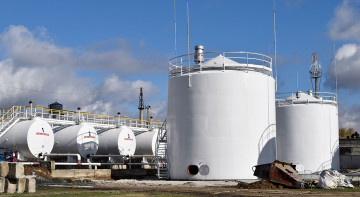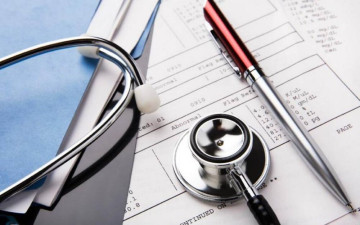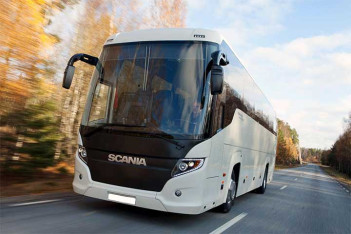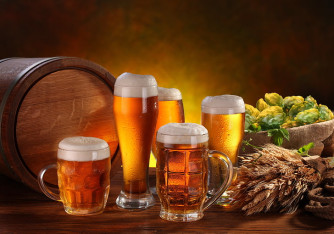Alcohol production license
An alcohol licence is a permit or authorisation document issued by the competent state authorities to enterprises or organisations to legally carry out activities related to the sale, production or distribution of alcoholic beverages. This document establishes the right and obligations of the owners of the business or organisation to sell alcohol in accordance with the laws of the country or region.
A licence to produce alcohol in Ukraine can have different forms depending on the jurisdiction and type of activity. For example, there are licences to sell alcoholic beverages in retail, licences to organise alcoholic events, licences to produce alcohol, etc.
Alcohol licences in Ukraine can have different forms depending on the jurisdiction and type of activity.
. An alcohol production licence usually involves meeting certain requirements and regulations such as compliance with food safety legislation, taxation, sanitary standards and controlling the sale of alcohol to minors.
Legal stages of obtaining a license for alcohol production
Description of the stages that a company or entrepreneur must go through to obtain a license:
- Document preparation:This step involves gathering necessary documents and information such as business registration, proof of ownership of the premises and other related documents.
- Applying for a liquor licence: Once the documents have been prepared, an application for a licence should be submitted to the relevant authority. The application usually includes details of the applicant, a description of the planned activity and other required information.
- Fees and charges: Often certain fees and charges are required to be paid in order for the application to be processed and the licence to be issued.
- Application verification: Once an application has been submitted, the authority will carry out an inspection of the business or organisation, including document verification, security and compliance checks.
- Issuance of licence: If the application is approved and all requirements are met, the alcohol licence is issued to the applicant.
- Compliance with conditions: Once a licence is granted, the business owner or organisation needs to strictly comply with all the conditions and regulations set out in the licence and legislation.
All of the above stages are important for legal activities in the alcohol business.
Under what conditions can the service of issuing a license for the production of alcohol be provided?
The service can be provided only if a number of established requirements and standards are met:
- Compliance with legislation: The applicant must comply with all the legal requirements for obtaining an alcohol licence in a particular jurisdiction.
- Submission of a correct application: The applicant must submit a complete and correctly completed licence application within the prescribed deadlines. Payment of fees and charges: The applicant must pay all required fees and charges associated with the licence.
- Compliance with safety and sanitation requirements: The premises and equipment used for the sale or production of alcohol must comply with safety and sanitation standards.
Only under the above conditions can a license for an alcohol business be obtained.
Under what conditions can the service of obtaining a license for the production of alcoholic beverages not be provided?

Failure to meet legal requirements: If an applicant does not meet all the legal requirements for an alcohol licence, the licence may be refused.

Breach of safety or sanitation regulations: If the premises or equipment does not comply with safety or sanitation requirements, the grant of a licence may be refused.

Past offences: If the applicant has a history of alcohol law violations, this may also result in the denial of a licence.
How to get a license for alcohol production on your own?
The process may seem complicated, but if you understand the main stages and requirements, you can successfully complete it yourself:
- Research the law: Familiarise yourself with the laws in your country or region regarding the sale and distribution of alcohol. Pay attention to licence requirements, required documents, procedures and timelines.
- Search for information: Use official sources of information such as websites of government agencies or licensing departments to get details about the process of obtaining an alcohol licence in your area.
- Consult with experts: Seek advice from a lawyer who specialises in licensing and the alcohol industry. He or she will be able to provide you with specific guidance and help you understand the nuances of the process.
- Document preparation: Gather all the necessary documents and information you will need to apply for a licence. Make sure they are complete and meet the requirements.
- Applying: Apply for a licence in accordance with the requirements and deadlines specified in the legislation of your country or region.
- Compliance: Once you have obtained your licence, make sure that you strictly comply with all the conditions and regulations set out in it and the legislation to avoid possible problems in the future.
Remember that the process of obtaining an alcohol licence can be complicated and can take time and effort. Therefore, it is important to thoroughly research all requirements and consult with experts if necessary.
FAQ about the license for the production of alcoholic beverages
Question
What do I need to renew my alcohol licence?
Answer
Renewing a liquor licence usually requires several steps: Researching the requirements: Before starting the licence renewal process, it is important to research the requirements and procedures set out in your country's or region's legislation. Applying on time: It is usually required to apply for a licence renewal within a certain time frame before your current licence expires. Make sure you apply in a timely manner to avoid downtime in operations. Document updates: Updated documents such as business registration certificates, insurance policies, leases and other related documents may be required when renewing your licence. Payment of fees and charges: You may need to pay certain fees and charges to renew your licence. Make sure you pay all required amounts in a timely manner. Safety and Standards Checks: Before renewing your licence, checks may be carried out to ensure that your business or organisation meets safety, sanitation and other standards. Going through administrative procedures: Depending on the specific jurisdiction, additional administrative procedures may be required, such as interviews or mandatory staff training. It is important to note that requirements for licence renewal may vary depending on the locality and type of licence. It is therefore advisable to contact local authorities or licensing specialists for details and assistance with the process.
Question
How do I get a liquor licence?
Answer
Obtaining a liquor licence usually requires the following steps and certain documents: Business Registration: First of all, you need to register your business according to the laws of your country or region. This may include registering a company, obtaining a tax number and other administrative procedures. Licence application: Prepare and submit an application for a liquor licence to the local government or administration. The application usually requires information about your business, a description of the proposed activity and other related data. Ownership or lease of premises: Provide proof of ownership of the premises where you will be selling alcohol or a lease agreement with the right to sell alcohol. Legal Compliance: Make sure your business complies with all legal requirements for the sale of alcohol, including age restrictions, health standards, taxation and other regulations. Payment of fees and charges: You will usually be required to pay certain fees and charges to process your licence application. Inspections and Inspections: Once your application is submitted, your business may be inspected to ensure compliance with all safety, sanitation and other requirements and standards. Such inspections may include inspections from local authorities or other regulatory organisations.
Question
Price of a licence to sell alcohol?
Answer
The price of an alcohol licence can vary significantly depending on various factors such as: Region: Prices can vary significantly from country to country, state to state or province to province, and from municipality to municipality or city to city. Type of licence: There are several types of liquor licences, including retail, wholesale, catering, etc. The cost of a licence can vary depending on the type and the additional rights associated with it. Business size: In some cases, the cost of a licence may depend on the size or turnover of your business. For example, for large chain shops or restaurants, the cost of the licence may be higher. Additional services: Some companies or solicitors' offices may provide additional services such as advice or assistance in completing the licence application, which can also affect the overall cost. Procedures and fees: In addition to the cost of the licence itself, there may be additional fees or charges for application review, inspections and other administrative procedures.
What does the cost of obtaining a license for alcohol production depend on?
The price depends on several factors. Firstly, it may be related to the type of license that needs to be obtained, since there are different categories of licenses (for the sale of alcoholic beverages, for production, etc.). Another important component is the size of the enterprise, because for large chains or manufacturing companies the procedure may be more complicated and require additional documents or checks. It is also worth considering the terms of obtaining a license, since urgency can affect the price. Legal services for preparing and submitting documents, consulting, auditing the company for compliance with requirements, as well as costs for state fees may change the cost of the service.
ConclusionThe process of obtaining a liquor license includes several important legal stages, such as preparing documents, submitting an application, checking the application and complying with safety requirements. Successfully obtaining a license is possible only if the applicant meets the legal requirements, submits the application correctly and ensures compliance with safety and sanitation standards. It is important to remember that violation of the requirements may result in the refusal to issue a license. To successfully obtain a license, you should contact lawyers or other experts for advice and assistance in the application process.




































